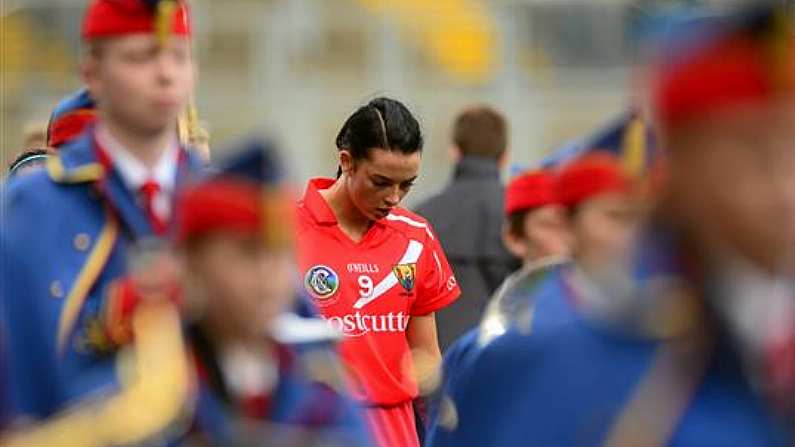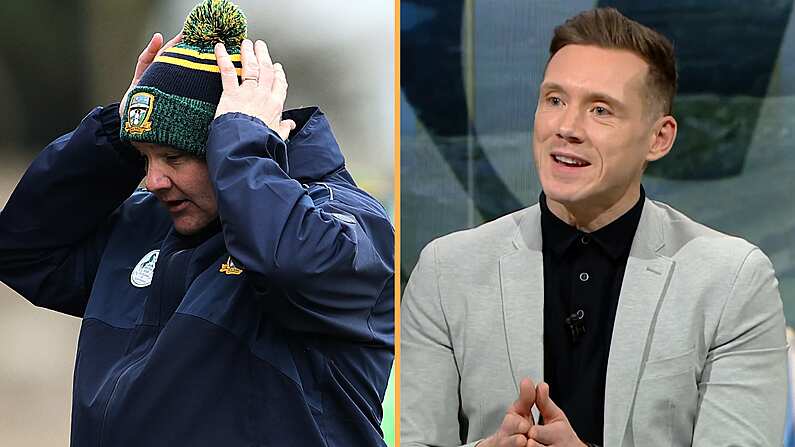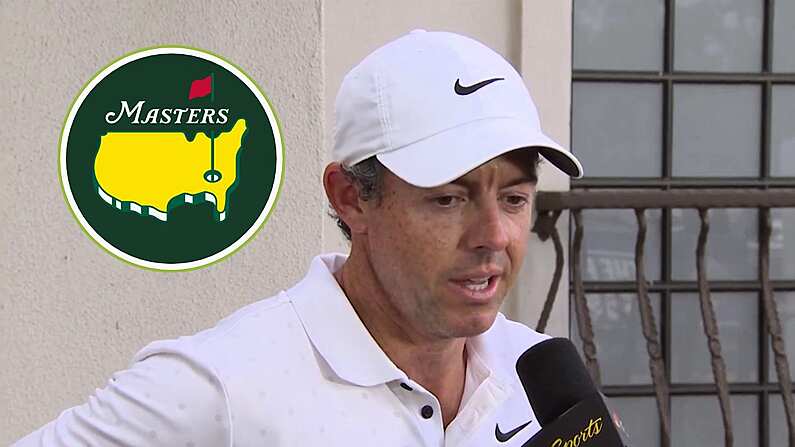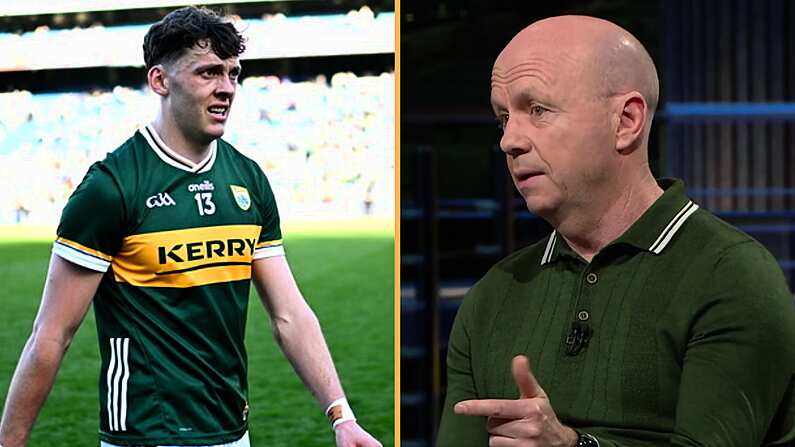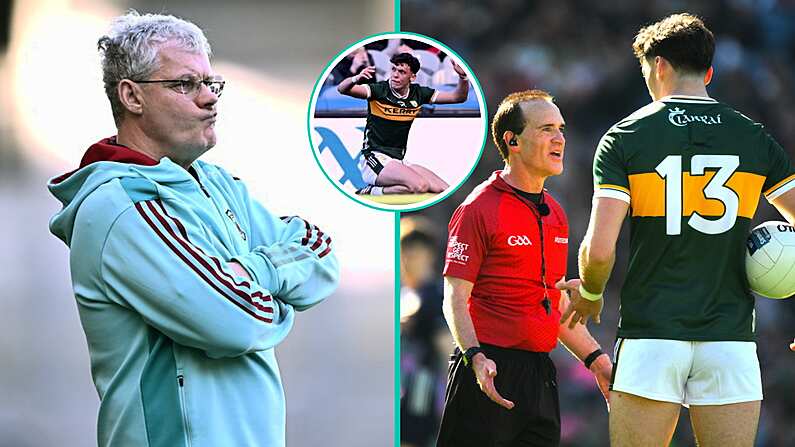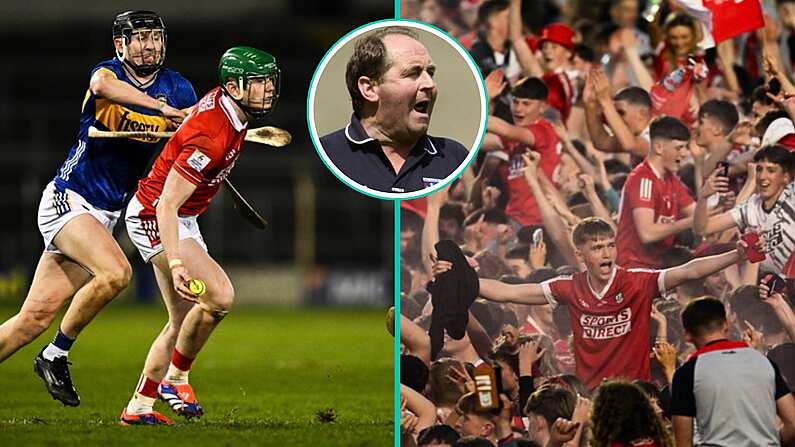Peaks and troughs.
Few have experienced them to the same extremes as Ashling Thompson, for whom the past seven years have been, to put it lightly, tempestuous.
In 2009, she was involved in a car crash near her hometown of Newtownshandrum. Her injuries were not life-threatening, but she was warned by her doctor that she'd likely never play camogie again. Her life passion had seemingly been stolen from her in the blink of an eye. The physical and emotional toil set her back about three years.
In 2012, she lost her on-off partner and dear friend to suicide, plunging her further into the bout with depression she had battled since the near-destruction of her athletic career. Underlying torment was naturally exacerbated tenfold, and Thompson readily admits that, were it not for the intervention of her club manager Frankie Flannery at Milford GAA and others, she might well have acted upon the advice of the devil on her shoulder.
Three years later arrived a peak; Thompson proudly raised aloft the O'Duffy Cup in Croke Park's Hogan Stand, having captained her native Cork to All-Ireland camogie success - her and Cork's second Championship in as many years. It was then she became one of the country's most recognisable sporting figures, garnering the admiration of a nation when she spoke out about her struggles both on and off the pitch.
Then a trough, as Kilkenny denied Cork the three-in-a-row last September, systematically breaking down the freight-train-like Rebels in a similar fashion to their male equivalents a decade previous. Such a defeat might pale in comparison to the personal loss endured before, but that's not to suggest it made failure any easier to swallow, particularly for a woman who lives and breathes GAA.
In the summer, she and her Cork teammates will rabidly pursue All-Ireland success once more, but Thompson has left September firmly in her rear-view. She swears.
"Well, going to into the new year...I'd always say, 'New year, new me, you know'?"
She laughs.
"Nah, I'm only messing."
No, we were obviously very disappointed with how we left things in September. It wasn't necessarily losing, it was the performance we put out on the pitch that day. We were absolutely disgusted after the game.
But d'you know what? Looking ahead to this year, we're really, really looking forward to it. We're really enjoying training at the moment which, for me anyway, is something different, because I love games but when it comes to training I'm not too fond of it.
Which isn't to suggest that she'll not train like a wildwoman, as is her wont.
Redemption however, and not revenge, will be on Cork's agenda for the coming season.
It changes each year; we're not looking at Kilkenny, we're not looking at anyone really. Fair play to Kilkenny, but God only knows - it could be anyone this year.
Like, people have bad games. Unfortunately ours came on All-Ireland final day.
But sport is cruel, and at the end of the day we're all healthy and happy. It's a new year, and there's no point dwelling on the past - you just have to leave it there.
It's a skill she's sadly had ample opportunity to develop, but with that has come a heightened sense of perspective.
Where once camogie was the be-all and end-all, it's now Thompson's cornerstone. Since her accident and personal turmoil, the fields of Roselawn and Croker have taken her to Cloud Nine where she might previously have viewed them as Ground Zero. Her rebirth - not merely as an athlete, but as a person - arrived with hurley in hand.
The 27-year-old's appreciation for her sport has increased - her obsession unwavering throughout. Thompson needs to play camogie, and always has. The elephant in the room, then, is as to whether that obsession - that need - could have ultimately led to her downfall following her crash in 2009, when she veered off the rails having discovered she might not take to the field again.
I've actually never looked at it that way. I suppose it's kind of true, but I'd never blame it. When you look at it from both sides like that, it definitely makes sense, but without it I really don't think I'd be here today. Ultimately, I think it's saved me more than anything else.
But at the same time, yeah, it probably got me into that dark place as well, because I was without it for such a long time. I wasn't the same athlete, I wasn't the same player, and that affected me.
It's funny thinking about it; I suppose wouldn't have been in that bad position if I didn't play camogie, but sure look, it's the same with anything. I could have been an artist and shattered my arm and been out for four years, you know?
She's spot on, of course. There's little wrong with a healthy passion until it's taken away in unforeseen circumstances.
Irregardless, and though it's perhaps easy to suggest in retrospect, it's not remotely surprising that she flipped the bird at the doctor's original prognosis and clawed her way back onto the field of play.
And while her sporting fixation may have shown the dark side of its double-edge in 2009, the irrepressible will to return - and subsequent achievement - would ultimately stand to her amidst the rather more horrendous tragedy which followed. With the support of friends, family and her club manager, the GAA pitch gradually became her barstool.
I'll always say that sport is something that I'm so glad I was born into. I'm so glad that my parents pushed me to play it. And yeah, of course, winning is important, but the enjoyment I get out of it... What it does for my brain... What it does for people in general - even if you go out and have a run for 20 minutes... Just the joy that comes out of it. Awh, I love it so much. And I'm just so thankful for what it has done for me - not only what it brought me through, but even the extra little things I get out of it. We probably take sport for granted. The way it can lift you from being literally nothing into something is amazing.
Going back to your point - that I might not have been depressed if I wasn't so involved in sport - at the same time, I'm glad I went through that. Because now I have the coping mechanisms that, if I ever do go down that road again, at least I know that I can get through it.
And a lot of girls do end up giving up on sport, and then times get tough, and they don't know how to deal with it. Whereas when things went tits-up for me, it was literally the one thing that pulled me through it. I appreciate what Cork camogie has done for me, what my club has done for me, and even the friends I've made along the way.
It wasn't all fairytales in Milford and Cork's midfield either, though. In December 2015, just three months after leading Cork to their second All-Ireland in as many years, Thompson revealed in two separate Newstalk interviews the repugnant side to her sporting renaissance.
To describe what she experienced as 'sledging' probably does a disservice to the English language.
In a single club match, one opponent snarled that when Thompson had the chance to give up on herself, she should have taken it. Another turned to her and asked of her ex-partner, who had recently taken his own life: 'Would ya blame him?'
On the pitch, Thompson was always volatile - a bona fide wind-up target. These slurring adversaries and others, however, hadn't targetted her volatility, but more callously, her perceived vulnerability.
They failed.
Obviously I mentioned that I would have loved to have buried my fist down their throat, but d'you know what, looking at it now, I'm so, so glad that I didn't give them the satisfaction. That's what they wanted.
I felt like those words literally bounced off me. I felt like nobody could touch me, especially after saying something like that. I don't think there's anything else that they could have done or said that would have been worse. I felt so satisfied that I didn't give them the rise of throwing a punch or breaking a hurley off someone.
I thought to myself: "Fuck them. I'm not going to give it to them." And if anything, it probably hurt their feelings more that I didn't. I'd literally walk away laughing, to be honest.
And when you do go through things like that, and you come out on top of it, you do feel indestructible. Not even words like that can stop you from fucking taking a step forward. And it did take teams a couple of years to realise, 'Shit, we're not actually getting the better of her here. The best thing to do would be try and beat her at her skill level and not her brain level.'
While her tale of on-field verbal abuse shocked the GAA world 13 months ago, her overall story was celebrated; this was a woman who had found herself submerged within the bowels of hell more times in the space of five-or-so years than most of us will in a lifetime. And yet here she stood, outspoken and invincible.
Personal demons down for the count if not wholly conquered (they probably never are), she returned to action in 2016 to find only relative silence.
Even this year [last season], that didn't happen once in club. It never happened at county, to be fair, because girls are very professional at inter-county level. But at club level it can get dirty. This year, though - and I'm not saying it's because of what I said [in Dec. 2015] - but I didn't come across it again. I haven't experienced it since.
Because let's say after 2012, I'd get absolutely eaten up and spat out by players. The years previous to that, awh... Like, you wouldn't have to ask me twice to drop my hurley and start throwing punches. But the thing is, with any team, you're going to pick on the hothead - especially if they're effective. So I wouldn't blame anyone for that, everyone does it.
I suppose last year [the 2015 season] was my worst experience of it. But it's not only myself - other players have experienced it too. I'm not saying, 'Oh, feel sorry for me, boo-hoo'. I've seen it first hand, other players getting the wrong end of it too.
But every year it gets easier, and easier, and easier not to react - not to give them the satisfaction. And, literally, players don't even so much as look at me anymore. Because they know there's no point; I'll literally laugh into your face, like! And they'll end up put off their game more than I am.
It frustrates them that they're not getting to me, and that gives me so much enjoyment.
One of Thompson's tattoos reads: 'Never give up on what you really want to do. The person with big dreams is more powerful than one with all the facts'.
Despite often being attributed to Albert Einstein, it was instead first penned by H. Jackson Brown Jr - author of Life's Little Instruction Book: 511 Suggestions, Observations, and Reminders on How to Live a Happy and Rewarding Life.
In this book he also suggests that, 'When you lose, don't lose the lesson'.
Into 2017 and beyond, the indestructible Ashling Thompson will carry with her enough lessons to write her own guide to life.
She's laughing, now.

